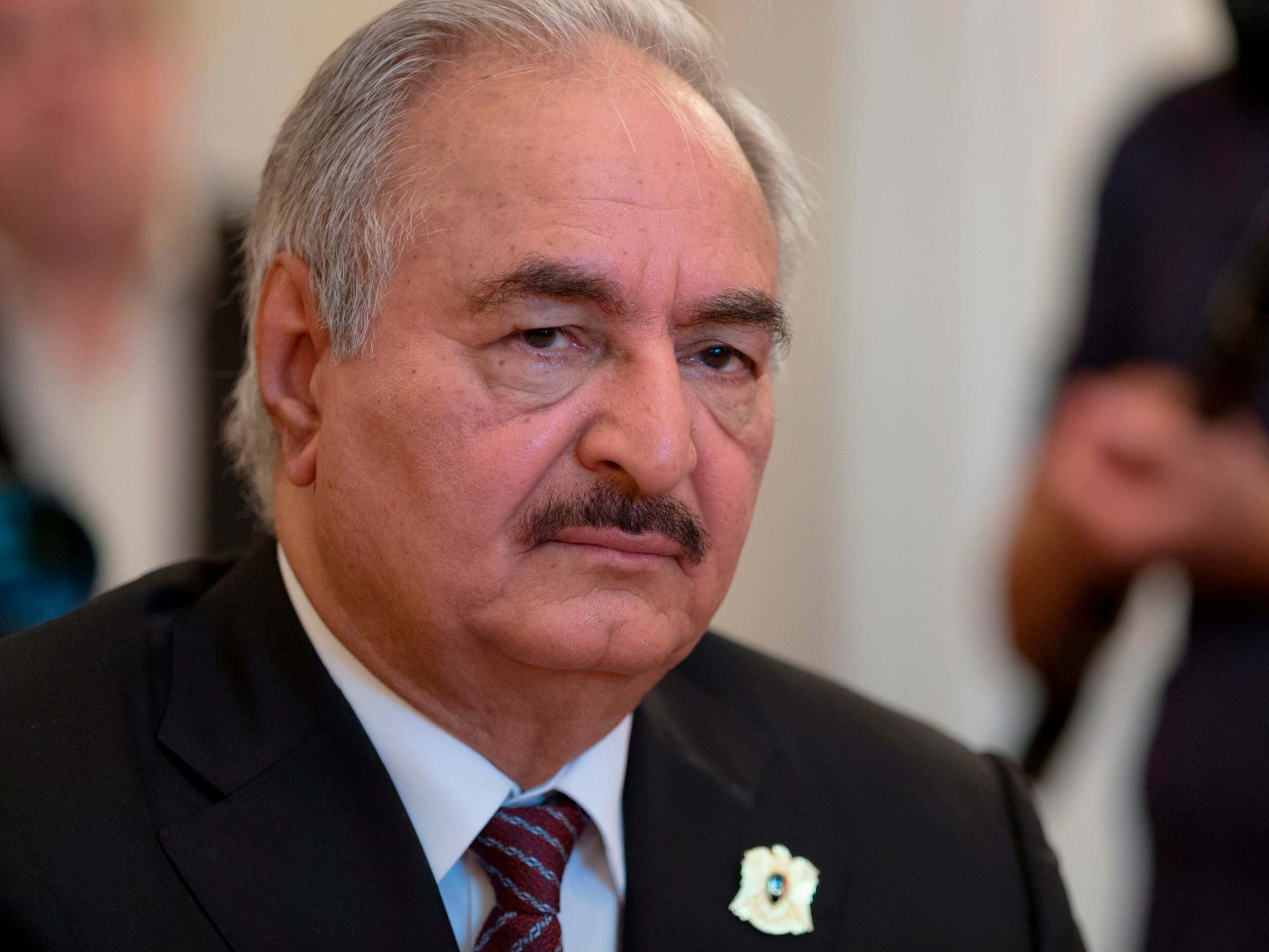Libya: Both sides in conflict announce nationwide ceasefire amid calls for new elections
Move comes after fears of an escalation in the more than nine-year-old conflict

Your support helps us to tell the story
From reproductive rights to climate change to Big Tech, The Independent is on the ground when the story is developing. Whether it's investigating the financials of Elon Musk's pro-Trump PAC or producing our latest documentary, 'The A Word', which shines a light on the American women fighting for reproductive rights, we know how important it is to parse out the facts from the messaging.
At such a critical moment in US history, we need reporters on the ground. Your donation allows us to keep sending journalists to speak to both sides of the story.
The Independent is trusted by Americans across the entire political spectrum. And unlike many other quality news outlets, we choose not to lock Americans out of our reporting and analysis with paywalls. We believe quality journalism should be available to everyone, paid for by those who can afford it.
Your support makes all the difference.Libya’s UN-supported government has announced a ceasefire across the country and called for demilitarising the strategic city of Sirte, which is controlled by rival forces.
In a separate statement, Aguila Saleh, speaker of the rival east-based House of Representatives, also called for a ceasefire.
The announcements came amid fears of an escalation in the more than nine-year-old conflict.
Both administrations called for an end to an oil blockade imposed by the camp of military commander General Khalifa Hifter since earlier this year.
General Hifter is an ally to the parliament speaker.
They also called for oil revenues, the country’s main source of revenue, to flow into the bank account of the National Oil Corporation outside Libya.
Powerful tribes in eastern Libya loyal to General Hifter closed export terminals and choked off major pipelines at the start of the year.
That was aimed at pressuring their rivals in the Tripoli-based government.
Fayez Sarraj, head of the Government of National Accord in the capital Tripoli, also announced parliamentary and presidential elections would be held in March.
The development comes amid international pressure and fears of a new escalation in the chaotic proxy war, as rival sides mobilise for a battle over Sirte, the gateway to the country’s major oil export terminals, which are under General Hifter’s control.
Both statements called for demilitarising the city of Sirte and the Jufra area in central Libya, and a joint police force to be responsible for security there.
There was no immediate comment form General Hifter’s army, but General Hifter agreed on an Egyptian initiative in June that included a ceasefire.
The UN Support Mission in Libya welcomed both statements and called for the expulsion of all foreign forces and mercenaries in Libya.
Both sides of the conflict are supported by thousands of mercenaries.
Libya was plunged into chaos when a Nato-backed uprising in 2011 toppled longtime dictator Muammar Gaddafi, who was later killed.
The country has since split between rival east and west-based administrations, each backed by armed groups and foreign governments.
General Hifter’s forces launched an offensive in April 2019 trying to capture the capital Tripoli.
But his campaign collapsed in June when the Tripoli-allied militias, with Turkish support, gained the upper hand, driving his forces from the outskirts of Tripoli and other western towns.
The chaos in the oil-rich country has worsened in recent months as foreign backers increasingly intervene, despite pledges to the contrary at a high-profile peace summit in Berlin earlier this year.
General Hifter is supported by Egypt, the United Arab Emirates and Russia.
Turkey, a bitter rival of Egypt and the UAE in a broader regional struggle over political Islam, is the main patron of the Tripoli forces, which are also backed by the wealthy Gulf state of Qatar.
General Hifter’s offensive on Tripoli has deeply polarised the already divided country and aborted UN efforts to hold a peace conference more than a year ago.
AP
Join our commenting forum
Join thought-provoking conversations, follow other Independent readers and see their replies
Comments